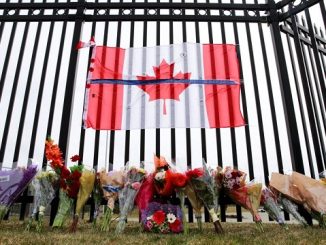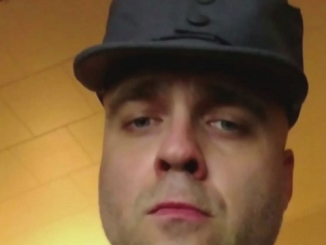
Rights groups have called for an investigation into the death of Karima Baloch, a Pakistani activist living in exile in Toronto, Canada.
Baloch, 37, a campaigner from the restive region of Balochistan in western Pakistan, was a vocal critic of the Pakistani military and state.
Toronto police issued an appeal after she went missing on Sunday. Friends later said her body had been found.
In 2016, Baloch was named in the BBC’s annual list of 100 inspirational women.
Toronto police tweeted on Monday, saying the activist was last seen on Sunday in the Bay Street, Queens Quay West area of the city. The force tweeted again later to say she been “located”, without adding any detail.
Friends and fellow activists said her body had been since been discovered, but the cause of death was not immediately made clear.
Baloch’s sister told BBC Urdu on Tuesday that her death was “not only a tragedy for the family, but also for the Baloch national movement”.
“She didn’t go abroad because she wanted to, but because… open activism in Pakistan had become impossible,” Mahganj Baloch said.
Balochistan province has been host to a long-running separatist insurgency. Baloch was a former head of the Baloch Students’ Organisation (BSO) – a banned activist group in Pakistan – and the group’s first female leader.
She had been living in Canada since 2015 after seeking asylum, saying her life was in danger in Pakistan. Her first public exposure as an activist was a decade earlier in 2005 in Balochistan’s Turbat area, where she attended a protest over missing persons carrying the picture of one of her missing relatives.
Activists in Balochistan say thousands of campaigners have gone missing in recent years. The Pakistani military denies accusations that it’s brutally suppressing the region’s aspirations for autonomy.
Several members of Baloch’s extended family had been linked to the Baloch resistance movement over the years, and two of her uncles – a brother of her mother and a brother of her father – had gone missing. Their dead bodies were later found.
She rose to the head of the BSO in 2006, but many of the group’s activists were either “disappeared” or went into hiding in the following years, and in 2013 the government banned the group.
Baloch went into exile in 2015 after terrorism charges were filed against her. After relocating to Toronto she married a fellow activist, Hamal Baloch. She remained active in exile both on social media and in human rights activities in Canada and Europe.
The following year she was named in the BBC’s annual list of 100 inspirational and influential women.
Reacting to the news of Baloch’s death, the Balochistan National Movement (BNM) announced a 40-day mourning period.
Amnesty International’s South Asia office said in a tweet: “The death of activist Karima Baloch in Toronto, Canada is deeply shocking and must be immediately and effectively investigated. The perpetrators must be brought to justice without recourse to the death penalty.”
Source: bbc.co.uk






Be the first to comment